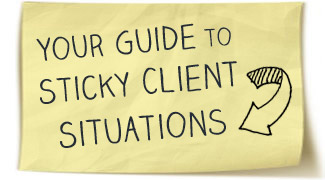SEO gets all the fame in today’s digital world. Why wouldn’t it? It’s what quenches the thirst of the business owners who think with a “quantity over quality” mindset. That’s pretty ironic, considering that only 10% of website visitors are of any value. Don’t get me wrong – SEO is critical. However, what some people don’t understand is that quality is just as important, if not more important, than quantity in the digital space. It’s these quality users – curators, gatekeepers, filters, connectors and cheerleaders – who you need to not only get in front of, but build mutually beneficial relationships with. And how you do this is with online relationship management (ORM).
In a recent video blog, Rand Fishkin of SEOmoz simplified the art of what is the simplest form of ORM – commenting in the online space. Though I disagree with his terminology, Fishkin reminds us that are three ultimate goals for any business in the online space:
1) Spread awareness of your brand
2) Position yourself as the industry authority
3) Build trust between your brand and influencers
So, let’s say you are an online PR business owner and you’re reading this article. In addition to the tips explained here, you have others. So in an effort to accomplish the aforementioned goals, you respond with your tips in the comments section as a way to help the readers of the article. You don’t include a link to your website; you just help the readers while spreading awareness and building trust. That friends, is one step towards on-target ORM.
With this article, I’ll walk through Fishkin’s tips, which you can read more about in his post, point out some other tips from his readers, and of course, add my two cents (as someone who comes from a PR background).
In his article, Fishkin lectures to:
- Always use a real human face, preferably yours, in your avatar (the photo that represents the online persona of yourself or your business).
- When commenting, add value by debating another perspective
- When you do link out in comments, don’t use the live link, and do this only if you have valuable information to link to. For example, cut off the “http” so that your link isn’t clickable.
- When you do decide to link out, caveat your link by telling the editor/blogger they have the option to make it a live link, or to remove it if they feel it’s unnecessary.
- Target the right blogs and communities
- Don’t pimp your products, pimp your content
- Don’t use marketing/social media buzzwords in your username, such as “social media expert” or “web wizard,” or whatever
His readers mentioned:
- Don’t comment with self-promotion in mind, but think about what value you’re giving back to the readers.
- View comment marketing as a “coffee chat” with friends
- If you can’t find a specific blog in your industry, try finding blogs in related industries.
- Stay consistent, even a few weeks “disconnected” will give people time to forget about you, and will make it that much harder to build your presence back up.
These are all great best practices, but the article missed a few points that I’d like to make:
- Be absolutely sure that all of your accounts are interconnected and you’re always using the same exact username and photo (he mentions this to some extent, but being interconnected needed to be emphasized more).
- If you’re just starting to build your online presence or diving into a new online community, don’t link out or self-promote until you’re having conversations with others in that community on a regular basis. You wouldn’t walk into Starbucks and start chatting with someone and then say hey, you should buy my product because I’m awesome, would you? So don’t do it online either. If someone wants to know who you are, they’ll find you (because you’ll be interconnected) without you blatantly self-promoting.
- If you’re a business owner and it’s only a one-person shop or a shop of just a few, you need to be the one leading the online relationship charge. At the very least, your name and likeness need to be represented, not any of your employees.
- If you have an employee handling the above for you (using your name or likeness of course), make sure you know exactly what they’re doing in the online space. Know what blogs and sites they’re involved in, have a good grip on the conversation and make sure they’re integrating your brand’s messaging.
- To the previous point, make sure your online relationship management efforts integrate consistent brand messaging. Brand messaging is essentially who your brand is and why they exist. This messaging should have been created prior to starting a business.
- Be the community “mom.” Moms are always right – even when you hate to admit it, and they’re always right there waiting with helpful advice. If you’re building your presence, you want to do this. If you’re always the one providing answers to questions and helpful advice, you’ll build a trustful repertoire with others.
- Integrate social media whenever possible. If you comment on articles and blogs, tweet, post and share those articles and blogs to your social media channels. This means more eyes on the article, and therefore more eyes on your insight.
- Online relationship management is a two-way street, folks. When you find articles and blogs that are useful, even if you don’t comment, share them. The owner can tell when their content is linked to, and if they’ll begin to know who you are, appreciate your generosity and treat you the same way.
Sorry, ladies – it looks like I should have written a book on this rather than a blog post!
But I wanted you to realize that online relationship management is so critical in the digital environment we live in and to become as lucrative as you want to be, you need to master it.
Though it may look daunting – keep in mind the golden rule of treating others how you’d like to be treated and you’ll be just fine.
How do you use comment marketing?






